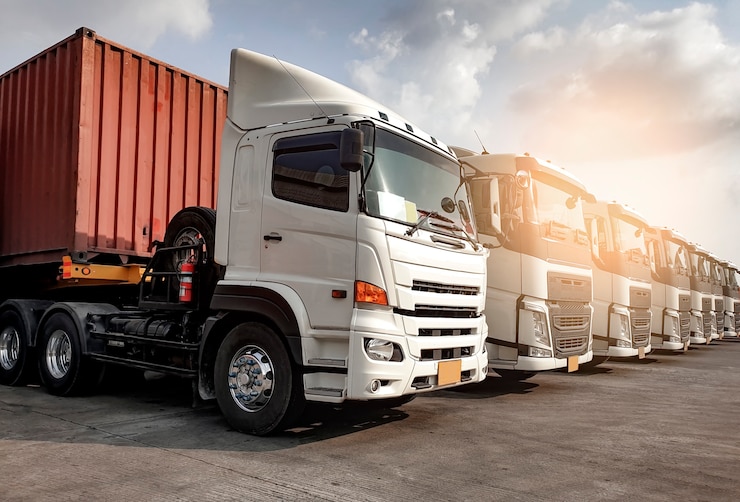How Does Commercial Truck Insurance Work?
3 Mins Read
Published on: 02 September 2022
Last Updated on: 13 November 2024

toc impalement
In the trucking industry insurance is one of the biggest expenses for companies. It is also one of the most necessary services. Trucking insurance policies help protect you if a driver is in an accident, cargo is damaged or stolen, or someone injures themselves on company property.
There are different types of insurance coverage you will be expected to have if you own a trucking company, or if you are an independent trucker.
1. Liability Insurance
The Federal Motor Carriers Safety Administration requires trucking companies overseas to carry between $750,000 to $5,000,000 of insurance.

If you haul hazardous material, you will need a minimum of $3,000,000 in insurance coverage. This insurance pays the bill of any person who is injured in an accident your driver causes.
2. Cargo Insurance
If you haul household goods, you are required to carry cargo insurance to pay for the furniture and other property you carry in the event of an accident. Trucking contracts require you to carry a certain amount of this type of insurance. It will cover you in the event of an accident or theft.
3. Physical Damage Insurance
If your driver is in an accident caused by another person, their insurance will pay for damages to your truck.

However, if your driver causes the accident, you are responsible for paying the bills. It is important to have insurance that protects against damages to your truck.
4. Uninsured Motorist Insurance
If a driver who does not have any insurance causes an accident, you are required to pay the driver’s medical bills. It is important to buy an uninsured motorist policy. Although the other driver should pay the bills, it is unlikely they will have enough money to cover all expenses.
5. General Insurance
All businesses need a general insurance policy. It will protect you if someone is injured on your property. Clients and drivers who do not work for you likely visit your facility regularly.

People moving cargo, pallets being loaded and unloaded, and people doing inspections and repairs are all at risk of injury. Injuries occur often and you will need a way to be protected when they do.
6. Bobtail Insurance
Truck drivers will occasionally detach trailers from their trucks and drive their vehicles home or to a motel for the night.
When they do this, they are not on the clock and they will not be covered by insurance. Hence, it is important to insure your equipment. Bobtail insurance will cover damages to your truck if an off-the-clock accident occurs.
How Claims Work
It is helpful to understand the process of filing a claim, especially when you need to use your insurance.
According to Simplex truck insurance, filing an insurance claim on a trucking accident is similar to filing a claim on any other type of insurance.
You will contact the insurance company and provide them with the details of the accident or theft. They have a certain amount of time to acknowledge your claim. The amount of time is determined by state law.
You will then provide the insurance company with all the documentation of the accident you have collected.
This includes:
- The accident report.
- Photographs of the accident.
- Any news stories about the accident?
- Names and numbers of any witnesses who may have seen the accident.
- Medical reports from an FMCSA-approved doctor.
- Medical bills.
- Truck repair bills.
Trucking accidents are expensive and the insurance company will likely scrutinize every aspect of a trucking accident. For this reason, it is important to collect as much evidence as possible.
Once you have turned in all information, an insurance adjuster will investigate the case and approve or deny your claim. The more documentation you provide to the insurance company, the better chance you have of receiving a fair settlement.
Shopping for insurance can be a challenging task. It is best to work with a company that is experienced in the trucking insurance industry and is committed to saving you money.
Read Also:


















Comments Are Closed For This Article